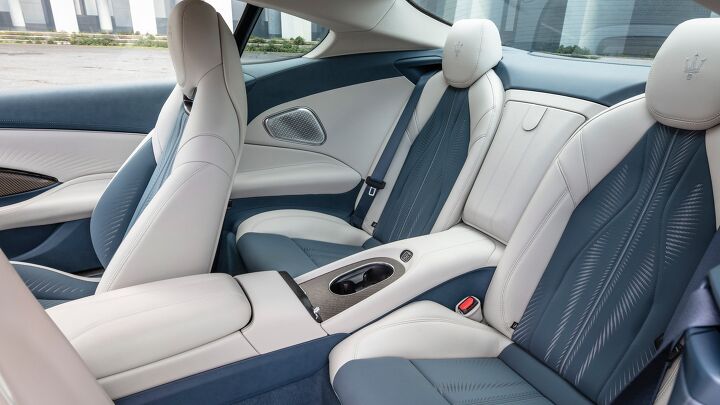Leather Trade Group Protests Move to Synthetic Materials

Leather has become an increasingly contentious automotive production material as automakers look to go green and many groups lobby for animal-free supply chains. While many companies have shifted to sustainable materials and plant-based alternatives to animal hides, a leather trade group is fighting back. One 4 Leather says that cow leather has a lower carbon footprint than the alternatives, but that might not be enough to change minds.
The group said that cow leather is greener because cattle are already being raised for food and milk, arguing that genuine leather makes use of a material that would be thrown out otherwise. As Green Car Reports pointed out, that statement assumes that cattle farming stays at its current level, and One 4 Leather said that methane, a significant byproduct of cattle farming, is a “short-lived gas.”
Even if that were true, cattle farming consumes tremendous resources, including water and land. There are also plenty of contaminants that can find their way into local waterways and soil, such as chemicals and animal excrement.
While many automakers still offer leather, those that have switched to synthetic or sustainable materials are unlikely to backtrack. Some, such as Tesla, changed after customer pressure, and others view sustainable materials as core to their electrification and carbon footprint-reduction efforts.
[Image: Maserati]
Become a TTAC insider. Get the latest news, features, TTAC takes, and everything else that gets to the truth about cars first by subscribing to our newsletter.

Chris grew up in, under, and around cars, but took the long way around to becoming an automotive writer. After a career in technology consulting and a trip through business school, Chris began writing about the automotive industry as a way to reconnect with his passion and get behind the wheel of a new car every week. He focuses on taking complex industry stories and making them digestible by any reader. Just don’t expect him to stay away from high-mileage Porsches.
More by Chris Teague


































Comments
Join the conversation
Thanks for sharing, I didn’t know.
The perforated leather seats in my Macan are quite nice. Heated and cooled; I hope they stand up well over time as I intended to drive it until the doors fall off.
You say in your article: "Even if that were true, cattle farming consumes tremendous resources, including water and land. There are also plenty of contaminants that can find their way into local waterways and soil, such as chemicals and animal excrement."
No cattle are reared for their hides. Hides are the by-product of the meat and dairy industry. These cattle are reared for another reason - not for their hides! Whilst we still eat meat and drink milk, there will be hides. It's crazy then not to use them and encourage the use of synthetic (you realise these are petroleum based?!) or questionable "sustainable" "leather alternatives" (products that use terms like vegan leather, for example, that cannot produce proper life cycle assessments (to actually determine their sustainability credentials) and which are often bound by plastics in the first instance.
I suggest your readers think before they purchase and really question green claims that are being made.
Leather IS sustainable. We will not be getting out of the cow business. Ever. I did work at a Cargill plant once. 4600 per day, every day. That’s a lot of leather. Use it.
Now go enjoy a steak.